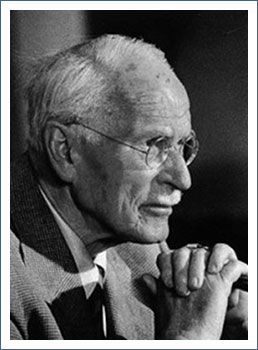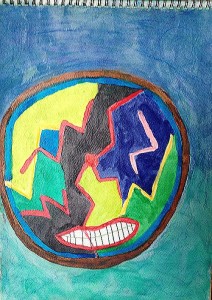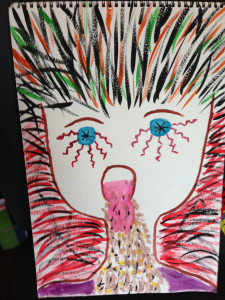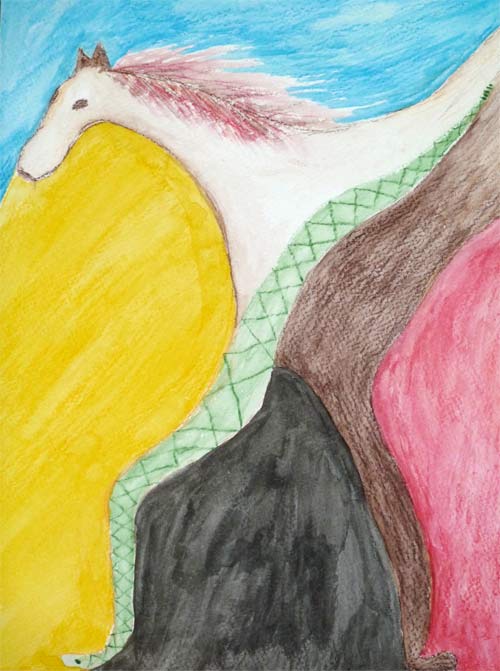
WELCOME
 My name is Barbara Woods Barnes. I am a Jungian analyst and psychotherapist with a private practice in Saint Augustine, Florida. I am a native Texan, schooled in California and trained in Florida. My training has included Grief Recovery, Sandplay, Trauma, EMDR and Addictions. In my free time I am an enthusiastic horsewoman, nature enthusiast, music lover and quilter. Jung’s regard for the human psyche and depth psychology has helped many to recover their balance and peace of mind even in the midst of life on life’s terms. Jung’s thorough approach includes addressing your past, your present and your potential future by increasing your embodied awareness of repeated life patterns, dreams, and important images. Painful suffering and traumatic experiences can be approached and transformed. During the second half of life, analysis can help us determine and explore where we have been, as well as what wisdom we have gained through life’s experiences. Through therapy we can creatively approach and employ this hard-earned wisdom for the rest of our lives. Increasing self-awareness and making meaning of our lives by exploring potent emotions can lead us to peace of mind and healing. Finding meaning in the ups and downs of life can set us free from the limitations created by fear and trauma. It is my life’s work and honor to accompany my clients through this journey. Finding a therapist who is a good match for you is essential for an effective therapeutic relationship and positive outcome to your concerns. Please feel free to contact me with any questions in regard to how we can work together to resolve whatever concerns or issues you may want to address. You can reach me at either 904-607-8899 or my email
My name is Barbara Woods Barnes. I am a Jungian analyst and psychotherapist with a private practice in Saint Augustine, Florida. I am a native Texan, schooled in California and trained in Florida. My training has included Grief Recovery, Sandplay, Trauma, EMDR and Addictions. In my free time I am an enthusiastic horsewoman, nature enthusiast, music lover and quilter. Jung’s regard for the human psyche and depth psychology has helped many to recover their balance and peace of mind even in the midst of life on life’s terms. Jung’s thorough approach includes addressing your past, your present and your potential future by increasing your embodied awareness of repeated life patterns, dreams, and important images. Painful suffering and traumatic experiences can be approached and transformed. During the second half of life, analysis can help us determine and explore where we have been, as well as what wisdom we have gained through life’s experiences. Through therapy we can creatively approach and employ this hard-earned wisdom for the rest of our lives. Increasing self-awareness and making meaning of our lives by exploring potent emotions can lead us to peace of mind and healing. Finding meaning in the ups and downs of life can set us free from the limitations created by fear and trauma. It is my life’s work and honor to accompany my clients through this journey. Finding a therapist who is a good match for you is essential for an effective therapeutic relationship and positive outcome to your concerns. Please feel free to contact me with any questions in regard to how we can work together to resolve whatever concerns or issues you may want to address. You can reach me at either 904-607-8899 or my email
THE JUNGIAN APPROACH
 Jungian psychotherapy is based on the work of Swiss psychiatrist Carl Jung. Carl Jung was one of the creators of modern depth psychology, which seeks to facilitate a conversation with the unconscious energies which move through each of us. He contributed many ideas which continue to inform contemporary life: complex, archetype, persona, shadow, anima and animus, personality typology, dream interpretation, individuation, and many other ideas. He had a deep appreciation of our creative life and considered spirituality a central part of the human journey. His method of interpretation of symbolic expression not only deepens our understanding of personal material, opening the psychodynamics of our personal biographies and dreams, but the deeper, collective patterns which develop within culture as well. Jung also emphasized the importance of balance and harmony and cautioned that modern humans rely too heavily on science and logic and would benefit from integrating spirituality and appreciation of the unconscious realm. Jung’s unique and broadly influential approach to psychology emphasized understanding the psyche through exploring the worlds of dreams, art, mythology, world religion and philosophy. By using the theory and techniques developed by Jung, the Jungian psychotherapist helps to guide the client in discovering their inner potential and wisdom. Using the Jungian perspective can facilitate a greater understanding of traumas and unhealthy patterns that have hindered one from finding healing and fulfillment in life. The process can certainly be difficult and painful at times, however it can result in a deeper connection with oneself that often results in a deeper connection with others.
Jungian psychotherapy is based on the work of Swiss psychiatrist Carl Jung. Carl Jung was one of the creators of modern depth psychology, which seeks to facilitate a conversation with the unconscious energies which move through each of us. He contributed many ideas which continue to inform contemporary life: complex, archetype, persona, shadow, anima and animus, personality typology, dream interpretation, individuation, and many other ideas. He had a deep appreciation of our creative life and considered spirituality a central part of the human journey. His method of interpretation of symbolic expression not only deepens our understanding of personal material, opening the psychodynamics of our personal biographies and dreams, but the deeper, collective patterns which develop within culture as well. Jung also emphasized the importance of balance and harmony and cautioned that modern humans rely too heavily on science and logic and would benefit from integrating spirituality and appreciation of the unconscious realm. Jung’s unique and broadly influential approach to psychology emphasized understanding the psyche through exploring the worlds of dreams, art, mythology, world religion and philosophy. By using the theory and techniques developed by Jung, the Jungian psychotherapist helps to guide the client in discovering their inner potential and wisdom. Using the Jungian perspective can facilitate a greater understanding of traumas and unhealthy patterns that have hindered one from finding healing and fulfillment in life. The process can certainly be difficult and painful at times, however it can result in a deeper connection with oneself that often results in a deeper connection with others.
The creation of something new is not accomplished by the intellect but by the play instinct acting from inner necessity. The creative mind plays with the objects it loves.
Carl JungABOUT BARBARA
Barbara S Barnes, is a Texas Diplomate Jungian Analyst based in Athens. A native Texan, schooled in California and trained in Florida she began her career in Tulsa, Oklahoma assisting young people with addictions Aftercare programs. Her training has included Grief Recovery, Sandplay, Trauma, EMDR and Addictions. In her free time Barbara is an enthusiastic horsewoman, nature enthusiast, music lover and quilter
EDUCATION
- Diplomate Jungian Analyst, Inter Regional Society of Jungian Analysts – (2015)
- M.S. – Marriage and Family Therapy, California State University – Northridge (1997)
- B.A. – Speech and Communication, California State University – Northridge (1993)
LICENSES/MEMBERSHIPS
- Licensed Mental Health Counselor – Iowa 2000 – 2004
- Licensed Mental Health Counselor – Florida 2007 – present
- Inter Regional Society of Jungian Analysts 2007 – present
- International Association of Analytical Psychology 2015
SERVICES
Dreams
 Why we dream? Dreaming is a means of being in contact with the unconscious. Dreaming contains, explores, releases, reviews, cooks, and transforms our psyches and thus our lives. By dreaming we create a buffer between ourselves and the archetypes which allows us to mingle with them without being “caught” in the archetypal world. The symbolism found in our dreams brings messages from the personal and collective unconscious. The analyst and the dreamer make meaning accessible by amplifying the symbols while simultaneously identifying personal associations. Dreams can be compensatory to the dreamers conscious position. They can also function as telepathic, prophetic, and in anticipation of a psychological development. By looking at your personal associations and including the mythological meanings we can postulate possible messages sent to us via the “God within” or creative other. The Self imbues the psyche with an impetus toward wholeness that can have self-healing effects. The unconsconscious pushes psychic material toward consciousness. Dreaming is one of the means the unconscious has of continuing to push material toward consciousness especially when the ego defenses continue to reject the material trying to come to consciousness. Dreaming is a vent for the unconscious. However, if we fail to seek to illuminate the unconscious it will often find other unpleasant means of getting our attention.
Why we dream? Dreaming is a means of being in contact with the unconscious. Dreaming contains, explores, releases, reviews, cooks, and transforms our psyches and thus our lives. By dreaming we create a buffer between ourselves and the archetypes which allows us to mingle with them without being “caught” in the archetypal world. The symbolism found in our dreams brings messages from the personal and collective unconscious. The analyst and the dreamer make meaning accessible by amplifying the symbols while simultaneously identifying personal associations. Dreams can be compensatory to the dreamers conscious position. They can also function as telepathic, prophetic, and in anticipation of a psychological development. By looking at your personal associations and including the mythological meanings we can postulate possible messages sent to us via the “God within” or creative other. The Self imbues the psyche with an impetus toward wholeness that can have self-healing effects. The unconsconscious pushes psychic material toward consciousness. Dreaming is one of the means the unconscious has of continuing to push material toward consciousness especially when the ego defenses continue to reject the material trying to come to consciousness. Dreaming is a vent for the unconscious. However, if we fail to seek to illuminate the unconscious it will often find other unpleasant means of getting our attention.
Grief Work
 Grief is an inevitable part of life. All of us suffer losses and rejections resulting in normal but difficult emotional responses. Grief often becomes complicated in American society due to the general avoidance to acknowledge our losses. In our culture we are often encouraged to “forget about it,” “put it behind us” or “be brave.” As our losses accumulate throughout life, “un-grieved” wounds can compound until we are no longer able to bear the burden of unresolved grief. Well attended grieving requires witnessing and compassion while allowing for the time and opportunity to address our sorrows, both past and present. The solution lies in resolving the wounds of distressing rejections, losses and deaths that have been carefully or unconsciously avoided or defensively dissociated. By consciously increasing awareness of buried losses, we can find meaning and make peace with our wounds. Some of the methods the therapeutic work can include are “chair work”, “love letters,” sand tray, and dreams. As a Jungian analyst I accompany my clients through the twists and turns of their lives and assist in amplifying their unconscious adventures, bringing meaning and conscious awareness to their journey. The journey to wholeness is sometimes difficult but often freeing. Grief work is a universal part of life and the journey toward acceptance and inner peace is well worth the effort. Grief work and therapy are about sharing a person’s journey before, during and/or after a death or loss. The focus is on companioning the bereaved during difficult transitions by following the emotion and finding meaning in the relationships. Simply, it is about listening to their stories, their pain, and their fears with an open mind and a true heart
Grief is an inevitable part of life. All of us suffer losses and rejections resulting in normal but difficult emotional responses. Grief often becomes complicated in American society due to the general avoidance to acknowledge our losses. In our culture we are often encouraged to “forget about it,” “put it behind us” or “be brave.” As our losses accumulate throughout life, “un-grieved” wounds can compound until we are no longer able to bear the burden of unresolved grief. Well attended grieving requires witnessing and compassion while allowing for the time and opportunity to address our sorrows, both past and present. The solution lies in resolving the wounds of distressing rejections, losses and deaths that have been carefully or unconsciously avoided or defensively dissociated. By consciously increasing awareness of buried losses, we can find meaning and make peace with our wounds. Some of the methods the therapeutic work can include are “chair work”, “love letters,” sand tray, and dreams. As a Jungian analyst I accompany my clients through the twists and turns of their lives and assist in amplifying their unconscious adventures, bringing meaning and conscious awareness to their journey. The journey to wholeness is sometimes difficult but often freeing. Grief work is a universal part of life and the journey toward acceptance and inner peace is well worth the effort. Grief work and therapy are about sharing a person’s journey before, during and/or after a death or loss. The focus is on companioning the bereaved during difficult transitions by following the emotion and finding meaning in the relationships. Simply, it is about listening to their stories, their pain, and their fears with an open mind and a true heart
Trauma
 Early childhood trauma, traumatic grief, violence and abuse all contribute to accumulated wounds to the psyche. Working with trauma survivors requires navigating accumulated and often repetitive wounds while identifying triggers and approaching fortified defenses concealed in the personal unconscious of an underdeveloped, frequently regressed, often dissociative ego. The therapeutic process demands a safe, secure, stable and consistent field where the client can strengthen their ego, approach their victim identification, manifest empowering coping skills all while holding the tension between their fear and their hope while awaiting transformation. Each client needs someone to accompany them through the difficult journey back through the halls of their personal hell while holding their hearts, hands, and mind through the terror their psychic defenses have attempted to protect them from re-experiencing. Identifying defenses structures and approaching entrenched attachment to the wounds are slow and necessary components to the therapy. Building ego strength while acknowledging ego defenses is a delicate ballet between the analyst and client. Trauma is not a lifetime sentence of painful desperation but an awful experience that can be transformed by tender attention to various unresolved feelings of victimization and powerlessness. Traumatic experience is initially an experience of pain and confusion but it can eventually become an opportunity to thrive via compassion and wholeness. Trauma is transformed by integral work with information from the client that can be both hidden and agonizingly present. The Self through dreams and images can help guide the journey we can make together toward healing and well being. This work requires perseverance and determination. It is the deep, vast treasure held within the damaged psyche that promises the possibility of healing. This work is not to be taken lightly or quickly but the peace of mind and soul’s emotional healing are worth the effort.
Early childhood trauma, traumatic grief, violence and abuse all contribute to accumulated wounds to the psyche. Working with trauma survivors requires navigating accumulated and often repetitive wounds while identifying triggers and approaching fortified defenses concealed in the personal unconscious of an underdeveloped, frequently regressed, often dissociative ego. The therapeutic process demands a safe, secure, stable and consistent field where the client can strengthen their ego, approach their victim identification, manifest empowering coping skills all while holding the tension between their fear and their hope while awaiting transformation. Each client needs someone to accompany them through the difficult journey back through the halls of their personal hell while holding their hearts, hands, and mind through the terror their psychic defenses have attempted to protect them from re-experiencing. Identifying defenses structures and approaching entrenched attachment to the wounds are slow and necessary components to the therapy. Building ego strength while acknowledging ego defenses is a delicate ballet between the analyst and client. Trauma is not a lifetime sentence of painful desperation but an awful experience that can be transformed by tender attention to various unresolved feelings of victimization and powerlessness. Traumatic experience is initially an experience of pain and confusion but it can eventually become an opportunity to thrive via compassion and wholeness. Trauma is transformed by integral work with information from the client that can be both hidden and agonizingly present. The Self through dreams and images can help guide the journey we can make together toward healing and well being. This work requires perseverance and determination. It is the deep, vast treasure held within the damaged psyche that promises the possibility of healing. This work is not to be taken lightly or quickly but the peace of mind and soul’s emotional healing are worth the effort.
Sandplay
 Sandplay is a therapeutic process intended to facilitate emotional healing and personal development. Sandplay is a play therapy for young and old alike. It engages the imagination with all its transformative and healing energies. A safe space is provided where the client can choose from hundreds of tiny objects and figures to create in a sandtray a picture of her inner world. The scenes in the tray are comparable to the symbolic images that occur in dreams. Sandplay is multidimensional using eyes, hands, body, mind and spirit. It uses your senses to engage in a physical and psychological experience where the psyche can circumvent many of the mental defenses utilized to protect rigid and limited beliefs about oneself. Sandplay also engages the child within who often has access to difficult childhood experiences and connection to the meaning we made of those painful experiences using our child’s mind. By engaging this part of our psyche we can help it traverse the developmental stages that may have been missed due to trauma, neglect, or overwhelmed parents who may have come to parenting with their own developmental deficits. The therapist silently witnesses and holds sacred space allowing individuals to connect with deep psychic contents in their own time and way. Bringing symbolic contents to conscious awareness is an important part of the healing process. Analysis or interpretation may occur at a later date, if desired
Sandplay is a therapeutic process intended to facilitate emotional healing and personal development. Sandplay is a play therapy for young and old alike. It engages the imagination with all its transformative and healing energies. A safe space is provided where the client can choose from hundreds of tiny objects and figures to create in a sandtray a picture of her inner world. The scenes in the tray are comparable to the symbolic images that occur in dreams. Sandplay is multidimensional using eyes, hands, body, mind and spirit. It uses your senses to engage in a physical and psychological experience where the psyche can circumvent many of the mental defenses utilized to protect rigid and limited beliefs about oneself. Sandplay also engages the child within who often has access to difficult childhood experiences and connection to the meaning we made of those painful experiences using our child’s mind. By engaging this part of our psyche we can help it traverse the developmental stages that may have been missed due to trauma, neglect, or overwhelmed parents who may have come to parenting with their own developmental deficits. The therapist silently witnesses and holds sacred space allowing individuals to connect with deep psychic contents in their own time and way. Bringing symbolic contents to conscious awareness is an important part of the healing process. Analysis or interpretation may occur at a later date, if desired
Depth Psychology
 Depth Psychology is designed to take a deeper look past the obvious known – into the unknown. It is an inward journey through the psyche – listening to the body, mind, and spirit to increase awareness or consciousness and reconnect to your innate divinity. Finding meaning and purpose in your life experiences often becomes increasingly important as you encounter challenges in life. Frequently, the desire to explore the deeper questions of your life surfaces well into adulthood. However, a traumatic or difficult childhood can inspire a need for understanding at a much younger age. Sometimes the yearning for self-knowledge initiates a journey and you begin grasping for insight and self-awareness. Embarking on a spiritual quest often leads to soul-searching in depth. All of these endeavors are well served by depth psychology. It is hard to understand why difficult and painful situations come into one’s life. At times, these distressing experiences arrive very early in life and cause significant changes in behaviors and relationships. Often there isn’t the time or inclination to explore them until later in life or when a devastating life change occurs. Then you might begin to grapple with the “why’s” of life which can help you to discover the rhyme and reason inherent in your individual life path. Often through suffering, you become willing to try to make sense out of seemingly senseless or random events. Whether it is your own suffering or the suffering of loved ones, you find yourself wondering over and over again “why did this or that happen to me? Or why “my” son, daughter, mother, father, wife or husband?” Until you can shine the light of consciousness on your psychological defenses and confront what is hidden behind them, you are under their control and don’t know why. People build defenses against being hurt again and do not realize the problems the defenses contain. By coming to terms with your actions and reactions you can begin to set yourself free from the limiting beliefs and derogatory messages you tell yourself. Mourning is one example of the inevitable painful emotions in life. Why do human beings try to avoid sadness when it is an integral part of life? Pain. By denying it, its’ grip strengthens and people are destined to be entwined with it. If are you are to be free from its hold, you must move through it. You can never quite be free from it if you choose to deny it or try to go around it. Finding significance and value in the unavoidable psychological injuries acquired throughout a lifetime is a soul-quest or spiritual pilgrimage through the comings and goings of life; the births and deaths, beginnings and endings, misadventures and trials that include grief, confusion, anger, disillusionment, sadness, and resentment. To face the tender longing to be loved, feel seen, make peace within and heal agonizing heartsickness requires courage and someone to witness our transformation. As human beings, we need each other. Depth psychology digs into the realm of personal stories. We need to tell our stories. Just as fables, fairytales, myths, and parables carry underlying messages, so do the personal stories of each individuals’ life. Discover and explore the signs or symbols and their meaning along the road as you make a trip to the center. As a child, did you find yourself drawn to a particular fairytale or superhero? Inherent in those preferences are clues that point to each persons’ souls objective.
Depth Psychology is designed to take a deeper look past the obvious known – into the unknown. It is an inward journey through the psyche – listening to the body, mind, and spirit to increase awareness or consciousness and reconnect to your innate divinity. Finding meaning and purpose in your life experiences often becomes increasingly important as you encounter challenges in life. Frequently, the desire to explore the deeper questions of your life surfaces well into adulthood. However, a traumatic or difficult childhood can inspire a need for understanding at a much younger age. Sometimes the yearning for self-knowledge initiates a journey and you begin grasping for insight and self-awareness. Embarking on a spiritual quest often leads to soul-searching in depth. All of these endeavors are well served by depth psychology. It is hard to understand why difficult and painful situations come into one’s life. At times, these distressing experiences arrive very early in life and cause significant changes in behaviors and relationships. Often there isn’t the time or inclination to explore them until later in life or when a devastating life change occurs. Then you might begin to grapple with the “why’s” of life which can help you to discover the rhyme and reason inherent in your individual life path. Often through suffering, you become willing to try to make sense out of seemingly senseless or random events. Whether it is your own suffering or the suffering of loved ones, you find yourself wondering over and over again “why did this or that happen to me? Or why “my” son, daughter, mother, father, wife or husband?” Until you can shine the light of consciousness on your psychological defenses and confront what is hidden behind them, you are under their control and don’t know why. People build defenses against being hurt again and do not realize the problems the defenses contain. By coming to terms with your actions and reactions you can begin to set yourself free from the limiting beliefs and derogatory messages you tell yourself. Mourning is one example of the inevitable painful emotions in life. Why do human beings try to avoid sadness when it is an integral part of life? Pain. By denying it, its’ grip strengthens and people are destined to be entwined with it. If are you are to be free from its hold, you must move through it. You can never quite be free from it if you choose to deny it or try to go around it. Finding significance and value in the unavoidable psychological injuries acquired throughout a lifetime is a soul-quest or spiritual pilgrimage through the comings and goings of life; the births and deaths, beginnings and endings, misadventures and trials that include grief, confusion, anger, disillusionment, sadness, and resentment. To face the tender longing to be loved, feel seen, make peace within and heal agonizing heartsickness requires courage and someone to witness our transformation. As human beings, we need each other. Depth psychology digs into the realm of personal stories. We need to tell our stories. Just as fables, fairytales, myths, and parables carry underlying messages, so do the personal stories of each individuals’ life. Discover and explore the signs or symbols and their meaning along the road as you make a trip to the center. As a child, did you find yourself drawn to a particular fairytale or superhero? Inherent in those preferences are clues that point to each persons’ souls objective.
YOUR FIRST VISIT
Contact Me
Address: 260 Paseo Reyes Dr St Augustine, FL 32095, USA Phone: 904-607-8899 E-mail: info@barbarawoodslmhc.com
